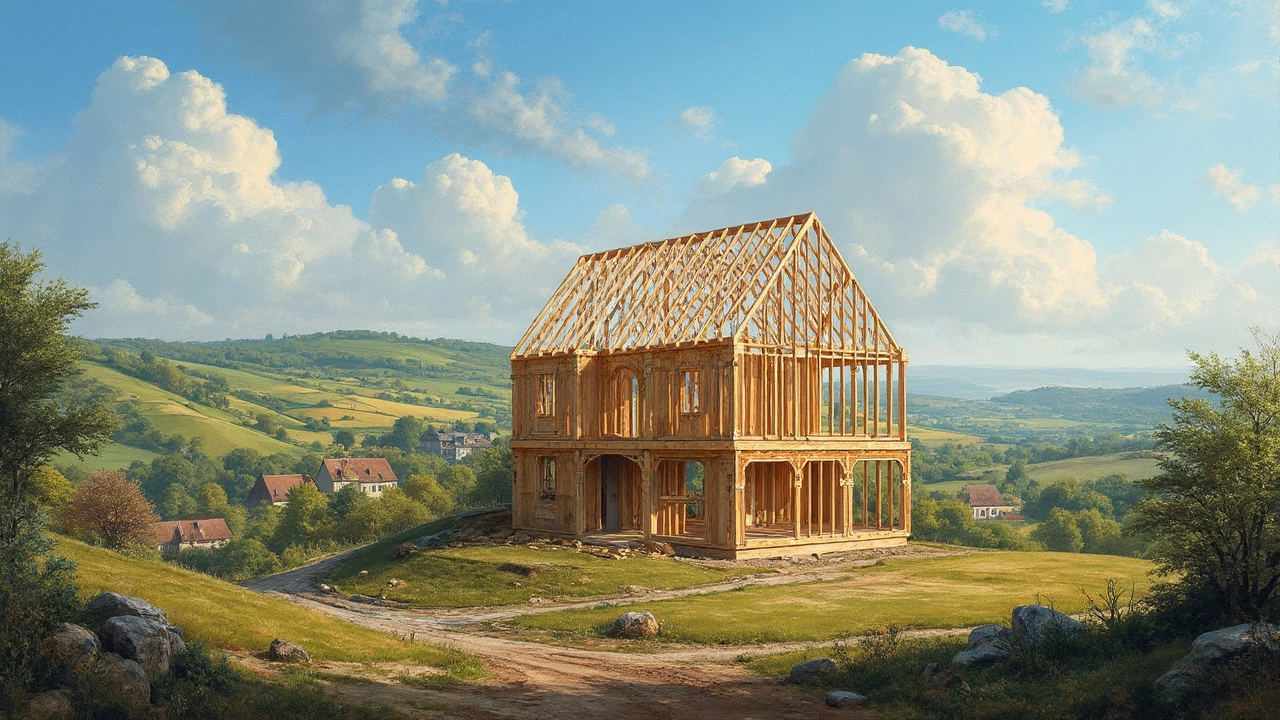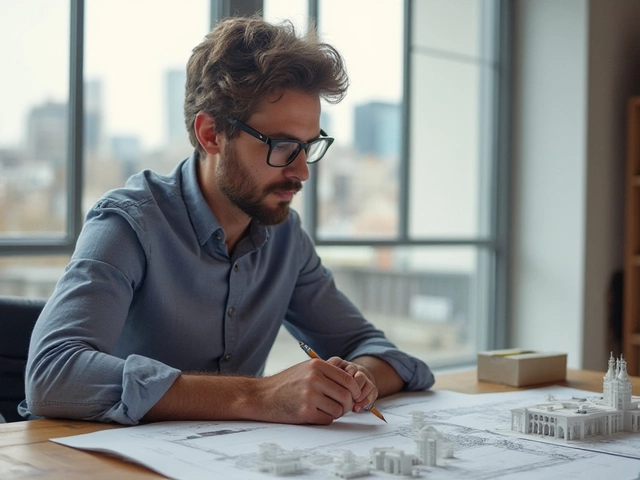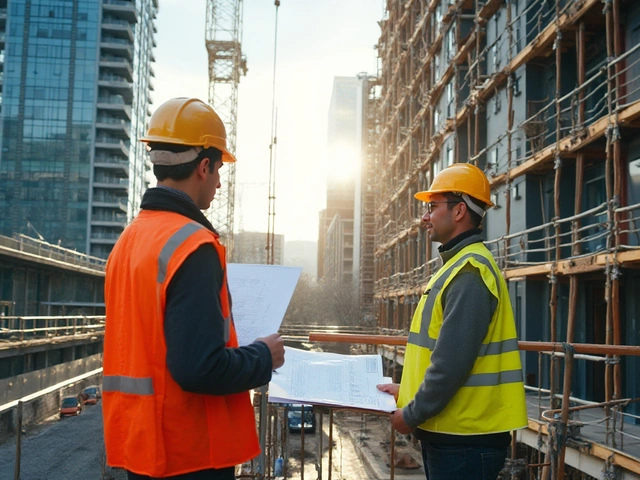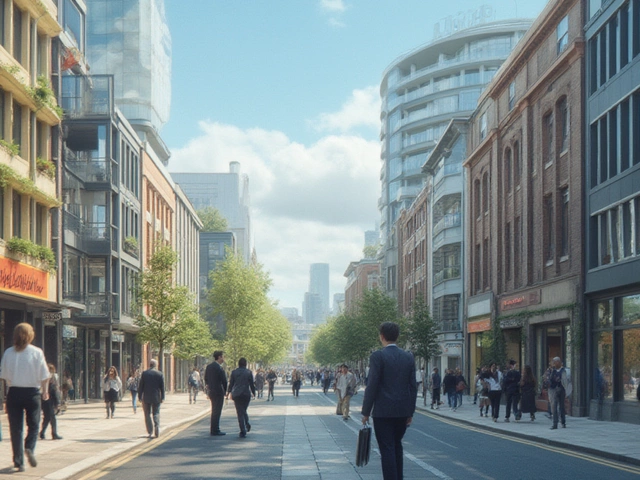If you've ever found yourself caught between the dream of building your perfect home and the ease of buying a new one, you're not alone. It's a tricky decision, with loads of variables thrown into the mix. Each option has its perks and pitfalls, and what works for one person might not suit another.
Now, you might think building from scratch is your ticket to a personalized palace. After all, who wouldn't want to design everything tailored to their tastes? But let me tell you, it's not all sunshine and rainbows. The costs can quickly add up, from permits to materials, and don't even get me started on those delayed timelines!
On the flip side, buying a new home can feel like the hassle-free way. You walk in, fall in love with the kitchen backsplash, and boom, you're a homeowner. But keep your eyes peeled for those sneaky extras, like HOA fees or special assessments, that can pop up unexpectedly.
- Comparing the Costs: Building vs. Buying
- Hidden Costs: What to Look Out For
- Customization or Convenience?
- Making the Decision: Factors to Consider
Comparing the Costs: Building vs. Buying
Alright, let's get into the nitty-gritty of building a house versus buying a house. So, what's usually cheaper? It depends. If you're thinking about new builds, there are tons of factors to weigh in.
When it comes to building, you're looking at costs like land purchase, permits, design fees, and the construction itself. On average, building a new home can run you around $150 to $200 per square foot, depending on where you are and what kinds of bells and whistles you want.
Buying a new home, on the other hand, might slap you with a straight-up price tag, but it's not all that obvious. According to some real estate insights from 2024, the typical cost of a newly built home hovered around $400,000. You may think, 'Hey, buying's got to be the easier option, right?' Well, not so fast.
Here are a few things that can impact your budget when deciding between building or buying:
- Customization: Want a room just for your cat? Building allows for that kind of tweak but at a cost.
- Speed: Buying can be quicker. Building takes months, sometimes a year or more.
- Location: Where you're looking can turn the price tables. In urban hotspots, buying might end up cheaper than finding a plot to build.
Choosing between building and buying isn't just about the sticker price. You have to think about what matters most to you—think style, location, timeframe, even stress levels! Keep these in mind, and you'll find the path that suits you best.
Hidden Costs: What to Look Out For
We all love a good deal, but when it comes to buying or building a house, hidden costs can sneak up on you faster than a cat on a laser pointer. It’s crucial to know what to keep an eye on, so let’s break down some of the common surprises that might hit your budget.
First off, if you're thinking of building, those little extras in construction can pile up. You might start with an ideal budget, but factors like site preparation, land permitting fees, and environmental compliance costs can add a nice chunk of change to the final bill. Plus, if you're dreaming of a green home, eco-friendly building materials can also jack up the price.
And don't forget utility hook-up fees, which can run high, especially in more rural areas where infrastructure needs to be extended. Speaking of infrastructure, access roads, sewage, and drainage solutions often are additional costs people don't initially consider.
For those leaning towards buying a house, you may think you're more in the clear. True, the price might seem set in stone, but watch out for unexpected spending post-purchase. Homeowner association (HOA) fees often fly under the radar and can vary greatly depending on the amenities. Then there are property taxes, which can dramatically change post-purchase as new assessments happen.
Moreover, there's a good chance you'll shell out for repairs no matter how new the build. Even fresh homes can come with a few surprises if not covered by a comprehensive warranty. Some newer homes also land in 'special assessment' zones, requiring homeowners to chip in for local development projects like new schools or road improvements.
To give you a clearer picture, here's a quick look at some typical hidden fees:
- Building: Site prep, permits, utility connections, eco materials.
- Buying: HOA fees, property taxes, unexpected repairs, special assessments.
Preparation is key here. Do your homework, build in a buffer for the unknowns, and chat with experts who know the ins and outs of these processes. Knowledge is power, especially when it's your pocketbook on the line.
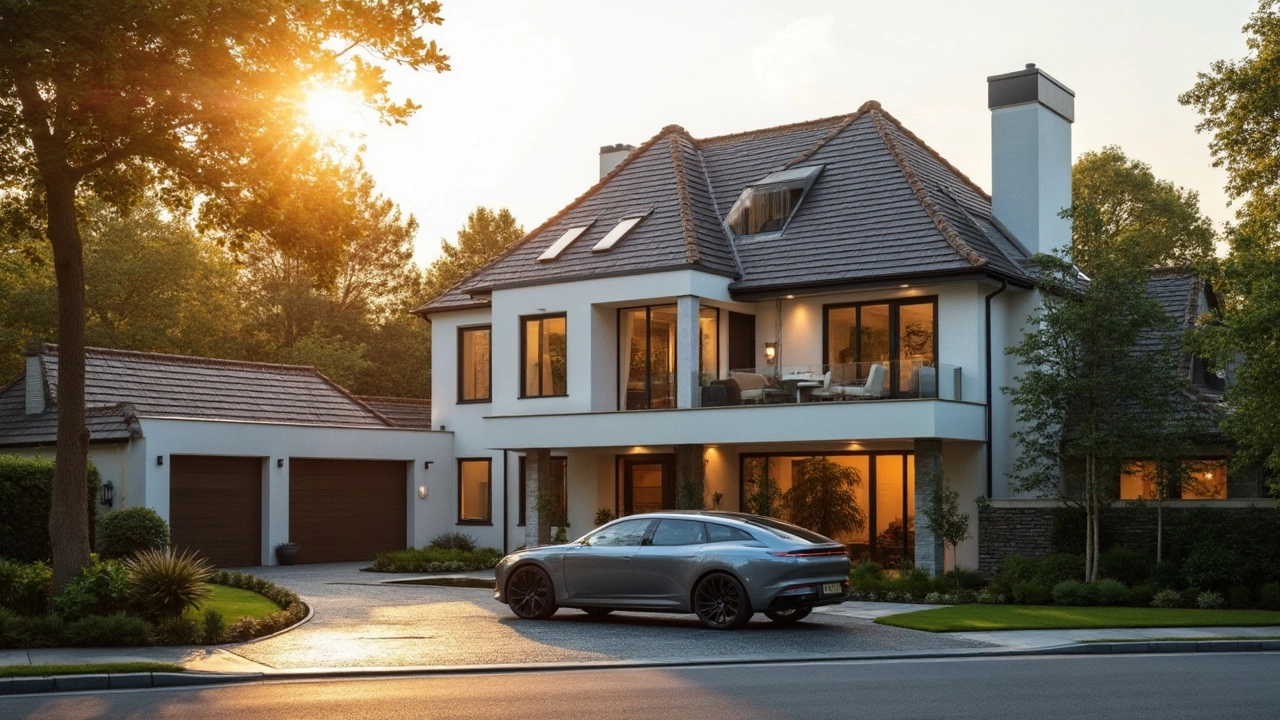
Customization or Convenience?
So, are you the kind of person who knows exactly what they want, down to the color of the grout between the tiles? Or do you just want to step into a space that’s ready to go, without having to choose a single fixture? Your answer can guide you toward either building a house or buying a house that's already shiny and new.
Let’s talk customization first. When you opt to build, you’re in the driver's seat. Everything from the floor plan to the finishes is up to you. Want a playroom right next to the kitchen? Go for it! But here’s the kicker: customization can stretch your budget. According to a 2024 survey by the National Association of Home Builders, custom-built homes average about 20% more than a pre-built new home. Sure, you can pick the quirkiest layouts and lushest lawns, but expect to pay the premium for those choices.
Now, on to convenience. Buying a ready-made home is like getting a fast pass to living in a modern space without the legwork. You save time, which, let’s be honest, is priceless when you're juggling work, kids, and Netflix binges. Closing the deal might seem complex, but it’s nothing compared to orchestrating a build from scratch. Plus, you might snag a good deal in upcoming neighborhoods on the cusp of skyrocketing in value.
And here’s a hot tip for potential buyers: newer homes often come with updated codes and warranties. So, there’s peace of mind that might outweigh all the decision-making chaos that comes with building. If anything breaks, that warranty might save you big bucks.
In the end, choosing between the thrill of building a house with every detail to your liking or the simplicity of buying a house that’s move-in ready really comes down to your appetite for adventure... and how much you want to shell out.
Making the Decision: Factors to Consider
Deciding whether to build or buy a new home can feel like being stuck between a rock and a hard place. But don’t worry! By considering a few essential factors, you'll find the puzzle pieces start to fall in place.
First up on the list is location. If you’re set on a prime spot, like being near good schools or a buzzing downtown, you might be limited to buying a home, as building lots in these areas can be hard to come by or insanely expensive.
Another biggie is customization. Love the idea of picking every fixture and finish? Then building is for you. But remember, customization can be a double-edged sword, often leading to overspending.
Time is also a crucial consideration. If you’re in a hurry to move, buying may be the safer bet. Building can take months, with potential delays for weather or issues with permits.
And let’s not ignore finances. Have you crunched the numbers to see if your dream build fits the budget? Building might mean surprise costs or needing to pay for a rental while you wait.
Finally, consider market conditions. In a hot real estate market, snapping up a completed home could be a wise move before prices climb even higher.
Take your time weighing these factors. Make a list, discuss it with your family, and perhaps even consult a real estate pro to see which route makes more sense for your situation.

